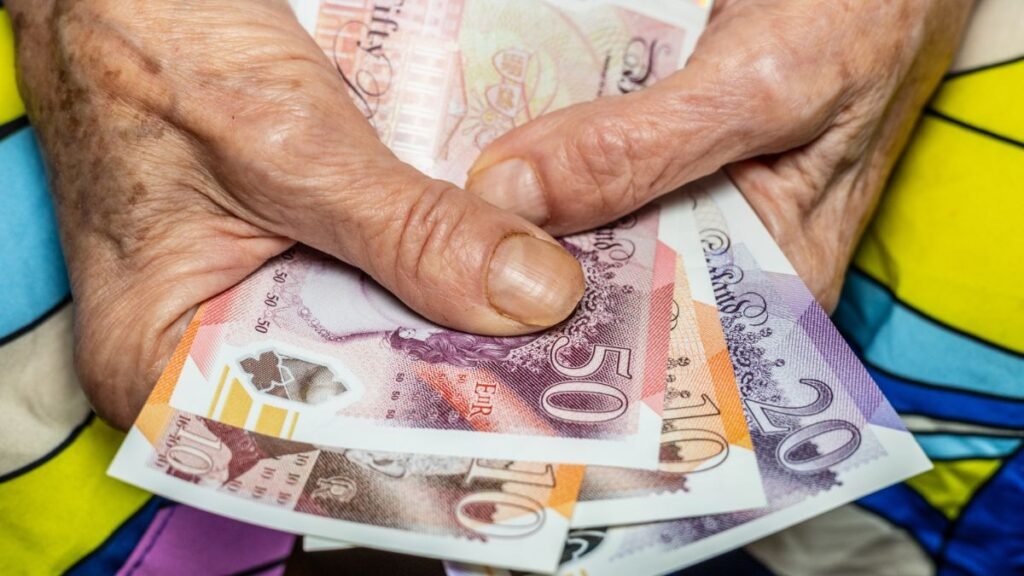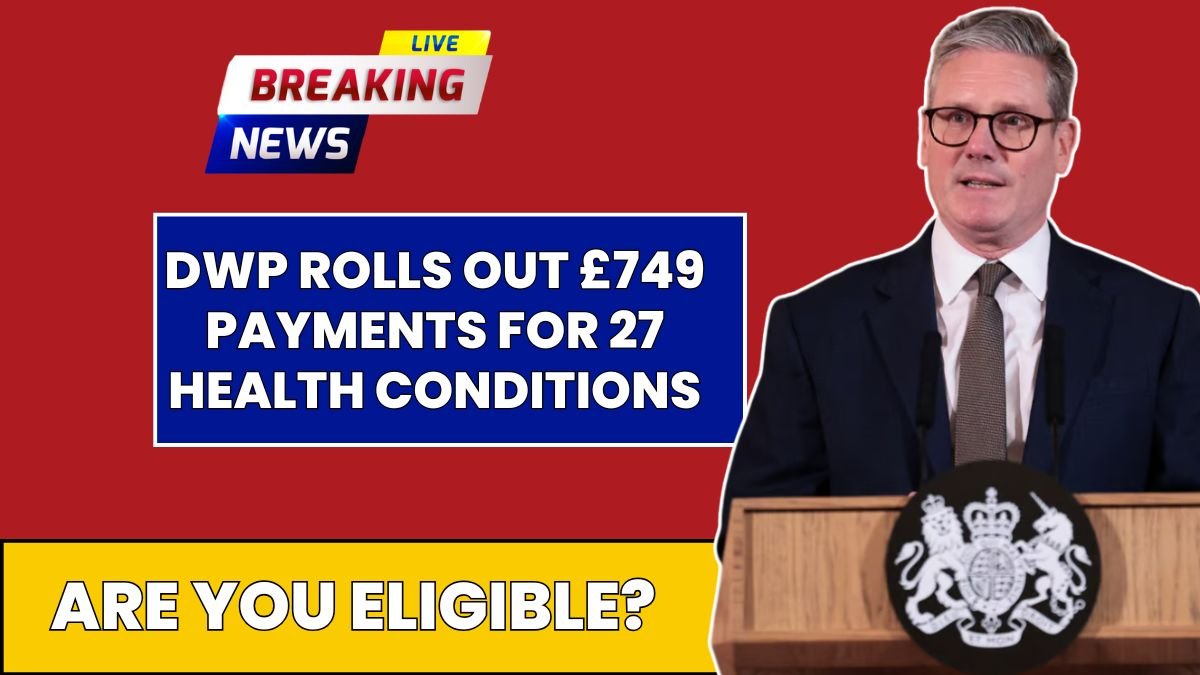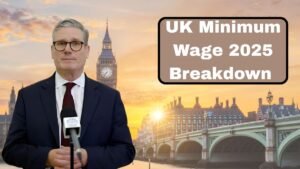Living with a long-term health condition Payments or disability can be incredibly challenging, especially when it comes to managing both day-to-day tasks and financial stress. That is why a recent announcement from the Department for Work and Pensions (DWP) is such important news. They have introduced a one-off £749 payment for certain people receiving Personal Independence Payment, often referred to as PIP. If you have been diagnosed with one of 27 specific health conditions and struggle with daily living or mobility, this additional support could make a real difference.
Below, I will walk you through everything you need to know—from what PIP is and why this new payment matters to how to apply and what help is available. And, since this can all feel overwhelming, I have broken it down into clear sections with plenty of examples and practical tips.
What Is PIP and Who Is Eligible?
PIP stands for Personal Independence Payment. It is a benefit provided by the UK government to help people with long-term illnesses or disabilities pay for the extra costs that come from daily life. It is not based on income, but on how the condition affects your ability to complete everyday tasks.
To qualify, two main areas are assessed:
- Daily Living – Do you need help cooking, dressing, or managing medication?
- Mobility – Are you unable to walk or move around without assistance?
People receive either a standard rate or an enhanced rate for each component. The key change now is that if these assessments show significant needs in both categories, you becoming eligible for this one-off top-up payment of £749. This is not a regular benefit, but a helpful addition to the usual PIP payments.
Which Conditions Qualify?

The DWP outlines 27 conditions that could make you eligible. To help you see if yours is included, here is a clear list of some of them:
- Respiratory issues – such as asthma, chronic obstructive pulmonary disease, or pulmonary fibrosis.
- Neurological conditions – like epilepsy and multiple sclerosis.
- Chronic or infectious diseases – including persistent pneumonia and sarcoidosis.
- Occupational illnesses – such as asbestosis or silicosis from long-term exposure at work.
- Organ conditions – including recipients of heart or lung transplants.
However, simply having one of these conditions is not enough. The key is how much impact it has on your everyday life. If your condition prevents you from managing tasks independently or makes walking difficult, you may qualify.
How Much Does It All Add Up To?
The regular PIP amounts for 2025 are:
| Component | Standard Rate | Enhanced Rate |
|---|---|---|
| Daily Living | £61.85 | £110.40 |
| Mobility | £24.45 | £64.50 |
So someone receiving both enhanced rates could expect a total of £174.90 every four weeks—or about £209 in a month depending on exact timing. Alongside that, the one-off £749 payment would provide a much-needed financial boost to help cover extra expenses.
What Could the Extra Money Be Used For?
To bring this into real-world terms, here are a few examples of what that added financial cushion could cover:
- Home care or adaptations – Hiring someone to help with tasks that your health has made difficult.
- Mobility aids – A better wheelchair, a special rug, or a shower chair.
- Services and devices – Like community transport, smart home equipment, or phone apps designed to help manage health needs.
- Extra support – Paying for respite care or help with cleaning if your energy levels fluctuate.
A one-time boost like this can significantly improve day-to-day living for those with limited means.
How to Apply and What to Expect
The process to apply for PIP and the one-off £749 payment follows several steps:
- Check Eligibility
Confirm your condition is on the DWP list and assess how it affects your daily living or mobility. - Gather Evidence
Collect proof such as medical records, letters from your doctor, hospital documents, or prescriptions. The more recent and detailed, the better. - Make the Application
You can apply online via gov.uk/pip or fill in the form by post. If the process is confusing, you can ask someone at a local DWP office or support charity to help. - Attend a Health Assessment
Usually via phone or sometimes in person, a qualified healthcare professional will ask questions and review your documentation. - Receive a Decision
You’ll get a letter outlining if you qualify for PIP at the standard or enhanced rate—and if applicable—the £749 one-off payment. If successful, you should see the money within a few weeks. - Be Mindful of Bank Holidays
The Department sometimes adjusts the payment schedule to avoid weekends and holidays. For example, during the May bank holiday, payments were advanced slightly to ensure on-time delivery.
Real-Life Example
Meet Sara. She suffers from chronic obstructive pulmonary disease (COPD). Every day, she struggles with stair climbing, grocery shopping, and even preparing meals because of breathlessness. After being awarded PIP at the enhanced rate in both categories, she also received the one-time £749.
With the money, she bought a lightweight rollator, hired a part-time cleaner for help around the home, and paid for assisted transportation to medical appointments. This kind of support has made her life much more manageable.
Other Financial Supports You Might Qualify For

PIP is not the only benefit out there. Depending on your situation, you may also qualify for the following:
- Disability Living Allowance (DLA) for people under 16.
- Employment and Support Allowance (ESA) if you cannot work due to illness.
- Universal Credit may be available in addition to PIP.
- Carer’s Allowance if someone cares for you for more than 35 hours weekly.
Remember, receiving PIP often means automatic eligibility or enhanced rates for other benefits.
Where to Get Help
Applying for PIP can feel overwhelming, but help is out there:
- Citizens Advice offers free guidance on filling in forms and understanding eligibility.
- Disability Rights UK provides clear fact sheets and advocacy services.
- Local welfare advisors or community centers often offer free, in-person appointments to help you.
- Support groups can also help you prepare for assessments and understand what evidence is most useful.
In Summary
- The £749 payment is a one-time additional award for people with PIP who meet certain criteria.
- It is linked to your assessment results, not just your diagnosis.
- It adds to your regular PIP payments and can significantly ease daily living costs.
- The process involves gathering evidence, applying, and attending an assessment.
- Support is available—so reach out if you feel unsure about any step.
This extra support could make a meaningful difference—whether it’s covering mobility aids, small adaptations, or a bit of care. If you have one of the qualifying conditions and struggle with daily tasks or mobility, it is well worth exploring your eligibility.
If you would like help drafting your PIP application or figuring out which evidence to collect, I can guide you through it step by step. Just let me know!
FAQs
1. What is the £749 payment from DWP?
This is a one-time support payment provided by the Department for Work and Pensions (DWP) for individuals diagnosed with certain qualifying health conditions or disabilities.
2. Who is eligible for the £749 DWP payment?
People living with one of the 27 specific health conditions recognized by the DWP may qualify. Eligibility also depends on receiving certain disability or income-related benefits.
3. What are the 27 health conditions that qualify?
The full list includes chronic illnesses, neurological disorders, mental health conditions, and physical disabilities. Examples include multiple sclerosis, Parkinson’s disease, and severe mental illness.
4. Do I need to apply for this payment?
In most cases, if you already receive qualifying benefits (like PIP or ESA), you may be automatically considered. However, it’s best to check with DWP or your benefits advisor.
5. When will the payments be made?
The exact payment schedule depends on your benefit type and eligibility status, but most qualifying recipients will receive the payment within a specified window in 2025.


